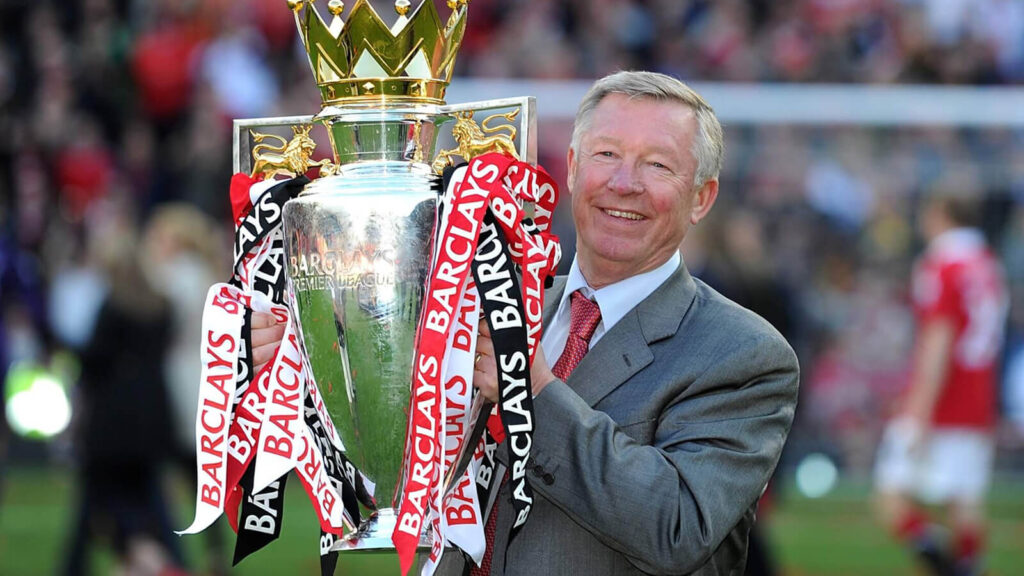Sir Alex Ferguson is one of the greatest football managers in the history of football. He had an incredible tenure, spanning 26 years at Manchester United. SAF has shaped modern football tactics through his evolving style and an insatiable desire for excellence. Even today his soul is felt, not just at Old Trafford, but throughout the footballing world.
Early Years: A Strong Defensive Foundation
It was during November 1986 when Sir Alex Ferguson first set foot into Manchester United. But he was greeted by a club in shambles. He took immediate steps to rebuild the team, starting with a focus on the defense. Early in his tenure, Sir Ferguson’s teams were organized and solid at the back, making them an extremely stern test for any opponent. Players like Steve Bruce and Gary Pallister formed a reliable defensive unit. Midfielders like Bryan Robson provided determination and leadership.
His first approach was pragmatic: discipline and physicality. He knew that any attack must follow a solid defense, as discipline and physical play came with an organized defensive base. This was the first introduction of the real tactical evolution of Ferguson. It gave him the possibilities of turning the club into a dominant force in English and European football.

Evolution in the 1990s: Attack, Width, and Youth
Transformation into the midfield attack and pouring in of youth was Ferguson’s way into the new decade of 1990. In the early 1990s, Sir Ferguson’s tactics evolved towards more attacking styles. United became known for width, fast counter attacks and relentless pressure on the opposition.
The critical point in this evolution was his faith in young players. After selling experienced stars, he famously promoted a crop of academy graduates. These included Ryan Giggs, David Beckham, Paul Scholes, Nicky Butt and the Neville brothers. Critics said, “You can’t win anything with kids,” but Sir Ferguson proved them wrong. His faith in youth, combined with fearless attacking football led United to unprecedented success.
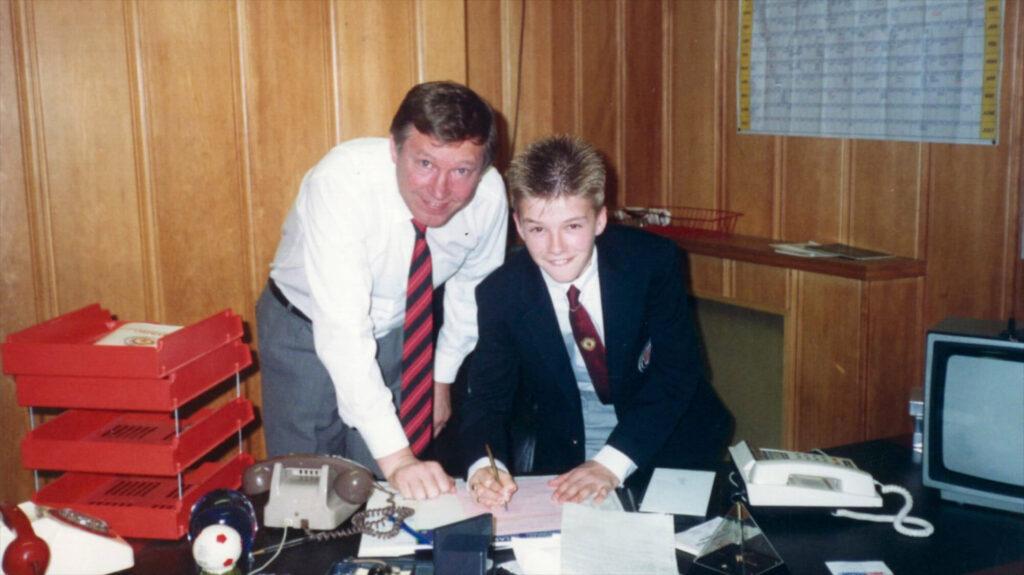
Wingers had a big part in the shift towards tactics. Giggs and Beckham shook wingers with their speed and crossing. His team always had two natural wide players, so that they stretched defenses and had opportunities created by outside-in play. This spread out became a Ferguson trademark and influenced the way future managers structured their teams.
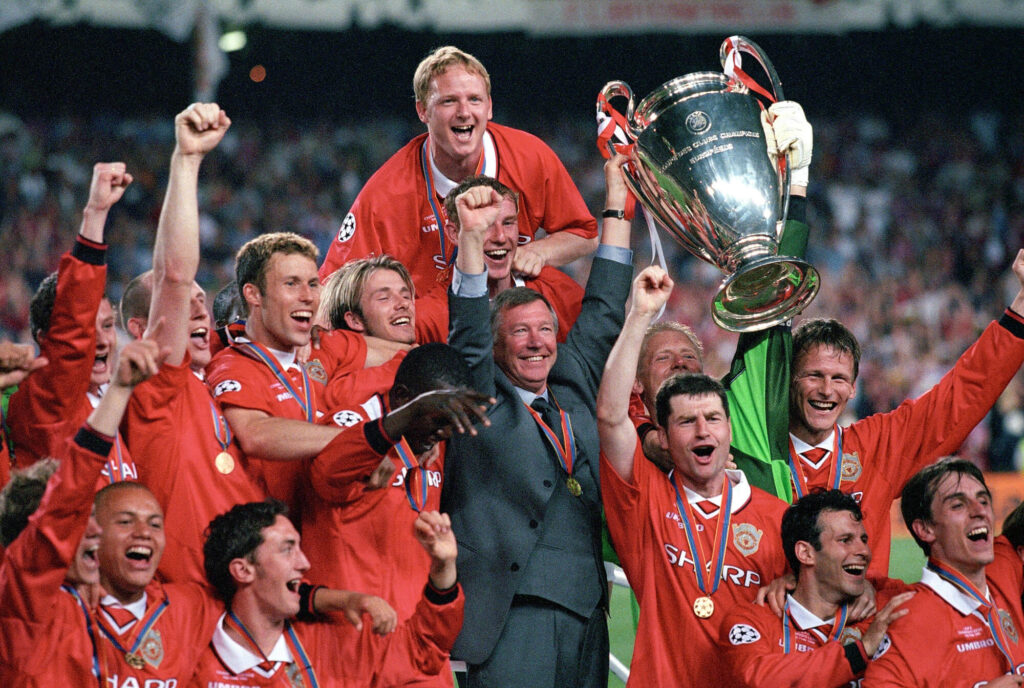
The Treble Season and Tactical Flexibility
The height of SAF’s managerial career came in the 1998-99 season when Manchester United won the treble. This was a clear testament not only to his motivational ability but also to tactical flexibility.
For example, in the Treble season, United played very different styles against different opponents. For weaker teams, they dominated and used to attack in waves. Against stronger European sides, they set up more cautiously. They absorbed pressure and then counter-attacked ruthlessly.
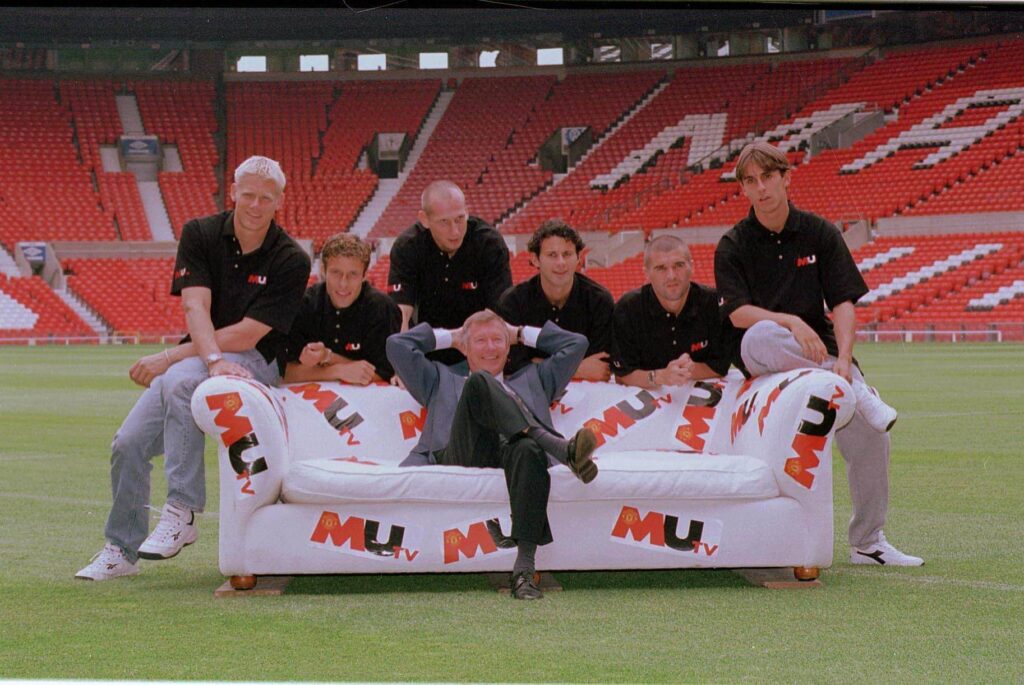
One of the principal ideas of his philosophy was adapting to new styles without abandoning his attacking principles. His formations were not fixed. He would use 4-4-2, 4-5-1 and 4-3-3, depending on the players available and what was at stake in the competition.
Last Years: Embracing the Modern Tactics
As the tactics evolved in European football in the 2000s, Sir Ferguson also changed. With the increase of talented European sides, there was an even greater need for control in midfield. He leaned heavily on three-man midfields, ensuring the team was always competitive in possession.
His side in 2007-08 represented modern flexible attacking football. Cristiano Ronaldo, Wayne Rooney and Carlos Tevez worked together to bring that approach alive. Instead of the use of traditional wide players, Sir Ferguson created a more fluid front three. This allowed interchange in attacking positions, creating confusion among defenders and allowing high-pressing. This new tactical approach helped United secure yet another Champions League title in 2008.
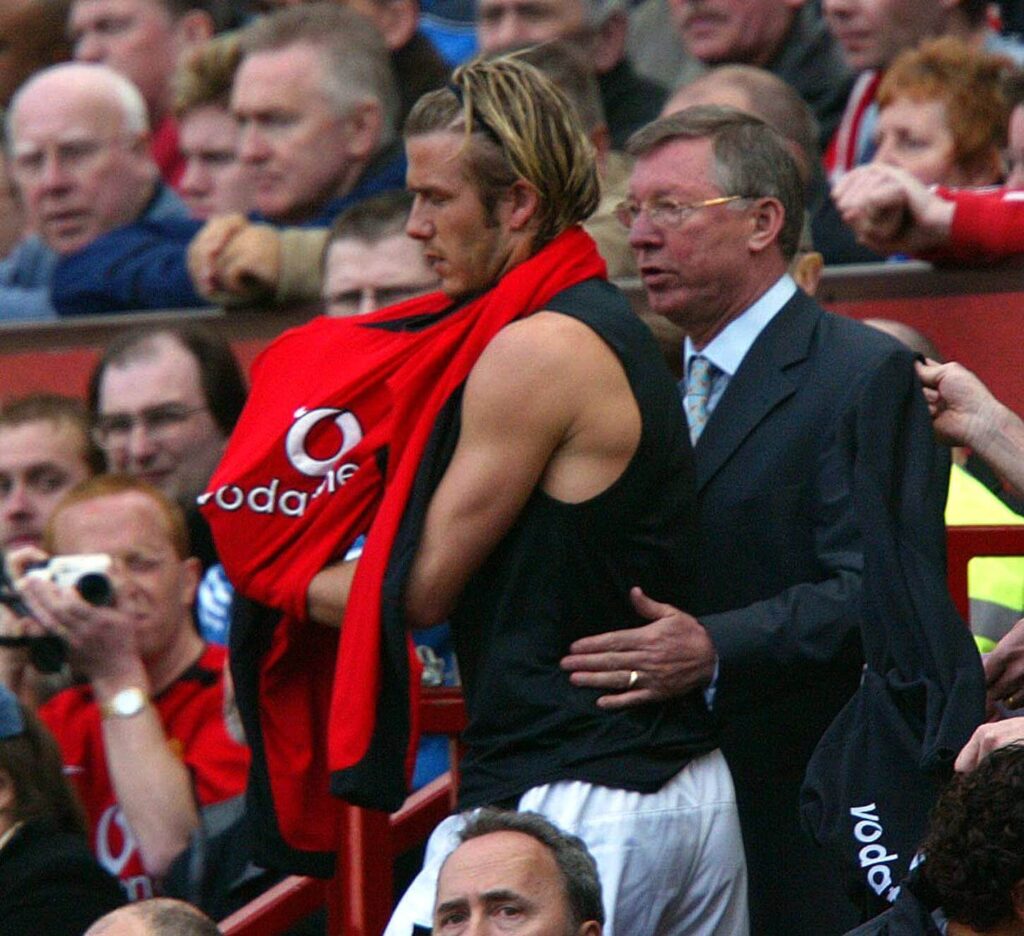
One defining characteristic of SAF’s managerial approach was that not one man should ever feel they are bigger than the club. Several of United’s biggest names fell out with him. Names like Roy Keane, David Beckham and Ruud van Nistelrooy are a few among them. The “Beckham incident,” with Ferguson allegedly kicking a boot that hit the player, grew into a kind of symbol of his severe discipline. Whenever there was any dissent, Ferguson would side with the unity and authority of the club rather than the egos of any of these individuals. This rigid attitude set up a culture of respect and responsibility that sustained United’s success.
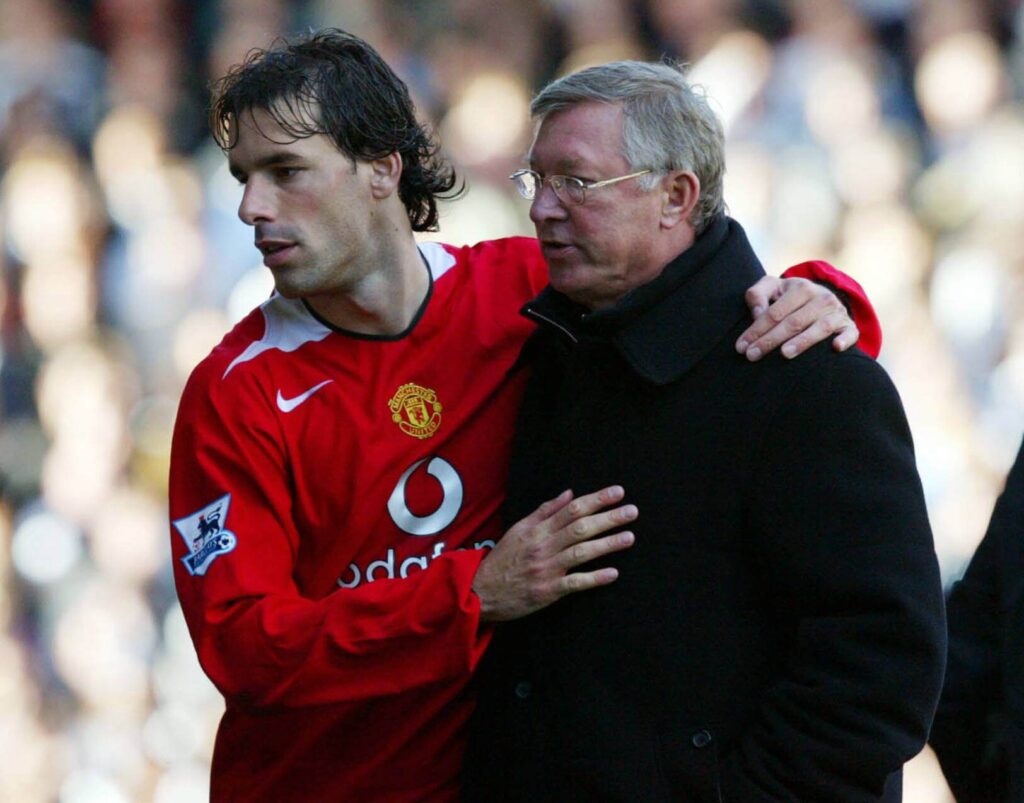
Sir Alex Ferguson’s retirement in 2013 marked the end of an era at Manchester United. His final season, 2012-2013, was a fitting conclusion to his legendary career, as he led United to their 20th league title. Man United also secured their place as the most successful club in English football at the time. The title was a testament to his enduring legacy and ability to adapt over time. His retirement left a massive void at United. SAF’s unparalleled success included 13 Premier League titles, 2 Champions League trophies and countless other honors.
Creating Modern Football Tactics
Sir Alex Ferguson’s legacy is not just in the trophies he won, but also in how he influenced modern football tactics. His emphasis on width has brought a foundation to modern expansive attacking systems. His philosophy on youth development inspired many clubs to invest in their youth academies.
Furthermore, the Ferguson method of squad rotation altered managers’ approach to whole seasons. In the early days of the Premier League, managers tended to take their best XI out each week. But he saw it would hurt the team on multiple fronts if he rested players, so he opened the entire squad. It is an innovation, to which most top clubs will testify.
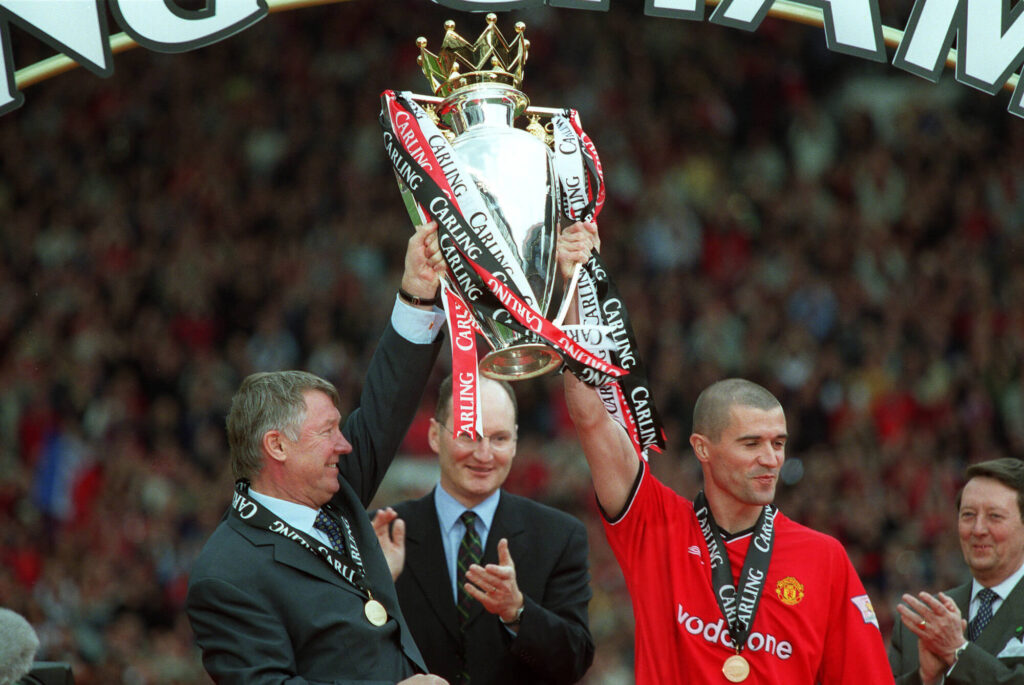
He was also one of the first managers to believe in building teams that could quickly switch from defense to offense. Modern coaches such as Jürgen Klopp and Pep Guardiola have their pressing and counter-attacking systems. But Sir Ferguson’s teams demonstrated an early version of the same idea within their play.
Even more, he was a master rejuvenator. In 26 years at Man United, he built at least four different title-winning teams with differing tactical flavors. Most managers find it difficult to renew once, Sir Ferguson did it several times. And each time, he remained ahead of the curve.
Why Sir Alex Ferguson Is One of the Greatest
Few football figures are as influential as Sir Alex Ferguson. His ability to evolve his style of play, his unparalleled success and contribution to modern tactical thinking, ranks him as one of the greatest football managers ever.
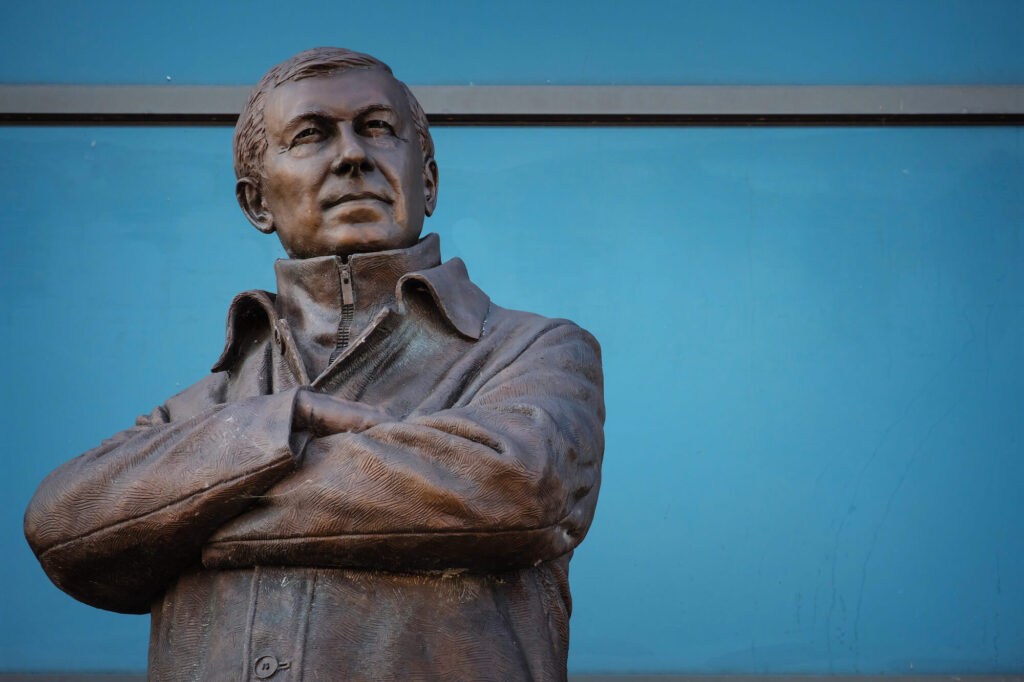
He showed that successful football isn’t really about sticking to one idea. It was to rather understand your players’ strengths, the challenge posed by the opponents and how the game itself is evolving. Sir Ferguson entertained millions, dominated English football and raised the standards of excellence.
On our Sofascore News website see how other coaches influenced modern football as well. For example Pep Guardiola, Carlo Ancelotti, and others.
